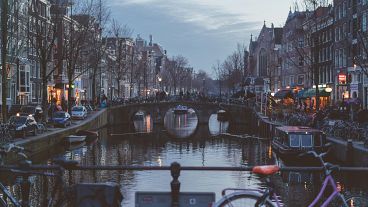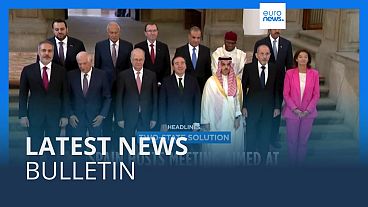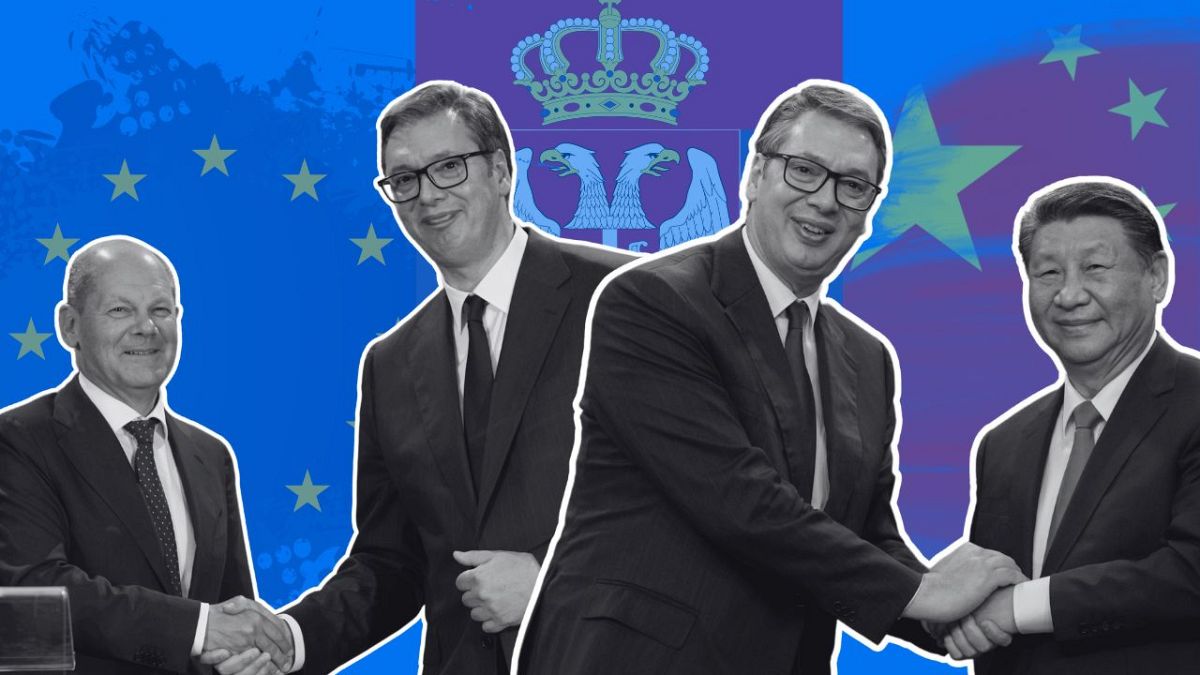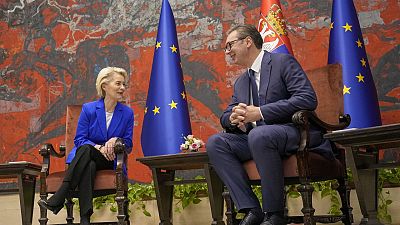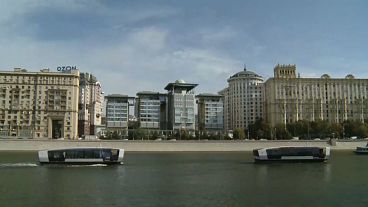French President Emmanuel Macron is visiting Serbia, less than five months after he hosted his Serbian counterpart in Paris. It comes as the EU and China continue to strengthen economic ties with Belgrade - but can Serbia maintain a diplomatic balance?
High on the agenda in talks between the French President, Emmanuel Macron and his Serbian counterpart, Aleksandar Vučić, will be access to critical minerals, such as lithium.
This is in line with the directives of the European Commission and the EU's long-term strategy for reducing dependence on China, Milan Antonijević, a senior research fellow at the Foreign Policy Center, told Euronews.
"The lithium mining project 'Emili' in France, under development by the Imerys company, could serve as a baseline for the conversation on lithium between the two presidents," Antonijević added.
Balancing EU-China interests
But striking the right balance for Serbia could prove to be a challenge, as policy makers seek to both embrace Macron and deeper economic and political relations with the EU whilst ensuring one of its main investors, China, also remains content.
A trade matter key on the agenda for both the EU and China is access to Serbia's lithium - a critical raw material and key component of batteries used in electric vehicles.
The strategic goal for Serbia? To work in harmony with China and the EU without risking progress and investment.
Vuk Vuksanović, a senior researcher at the Belgrade Centre for Security Policy, told Euronews: "Belgrade believes that it can maintain this precarious balance and the logic boils down to the fact that Beijing is useful for the flow of easily obtainable loans and investment capital.
"But as long as China doesn't make it its aim to gain a foothold in Serbia's strategic economic domains such as the 5G infrastructure, defence and critical minerals, e.g. lithium, Serbian authorities believe that they can maintain a relationship with Beijing without making an enemy of the EU or the US."
EU lithium deal with Serbia
Commission vice-president Maroš Šefčovič and German Chancellor Olaf Schulz signed a memorandum of understanding in Belgrade last month, just days after Belgrade gave the green light for Anglo-Australian mining corporation Rio Tinto to resume a lithium mining development in the west of the country.
The EU executive said that it remains "fully committed" to the partnership – the latest in more than a dozen Brussels has signed to reduce its dependence on China.
Dimitrije Milić, a program director at the Belgrade-based think-tank New Third Way, told Euronews: "The current lithium mining project in Serbia is aligned with EU interests, the project is closely related to the European Critical Raw Materials Act, introduced in March 2023.
"This alignment was predictable, given that a significant portion of Serbian exports and foreign direct investment depend on European automotive industry supply chains."
EU limiting dependence on China
Currently, 97% of the lithium the European Union uses is from China, as highlighted by Ursula von der Leyen during her opening speech at the Clean Tech Industry Dialogue in Brussels in 22 February 2024.
"We have observed that China, over the last 20 to 30 years, has strategically bought mine after mine globally. They take the raw material, they have the processing procedures in China and then they have the monopoly for this raw material....so we are totally dependent on this one on China," she said.
Đorđe Trikoš, a strategic communications consultant, also highlighted to Euronews how the automotive industry is of strategic value for Germany, Europe's largest economy.
"The source of lithium in Europe itself reduces transaction costs for German car companies, making German electric cars cheaper and therefore more accessible to European customers.
"All the more because the production in Serbia would include both the mining and processing of lithium," Trikoš added.
Niclas Frederic Poitiers, a research fellow at Bruegel, also spoke to Euronews about the balancing act for Serbia and he noted how China has weaponised its dominance in supplying critical raw materials, such as rare earths, against Japan in the past.
"Europe needs to diversify its sourcing of lithium to ensure that the same doesn't happen to its battery industry. Refining is especially critical. Ideally, Europe would have a wide range of source countries for its supplies. The projects in Serbia help this goal."
China's access to Serbia's lithium
China, meanwhile, has substantial domestic lithium resources of its own so is not as reliant on lithium from Serbia. However, during Chinese leader Xi Jinping's latest visit to Serbia, it was widely reported how access to Serbia's lithium supplies was among the topics on the agenda.
China currently owns many mines and factories across Serbia, including its biggest copper mine. China has also lent billions for roads, bridges and facilities through its Belt and Road Initiative, which finances infrastructure development.
"Rio Tinto's single largest investor is China, and a Free Trade Agreement with China recently entered into force, which stipulates that lithium can be exported to China at zero percent duty. So surely China will take advantage of that," claims Đorđe Dimitrov from the European Policy Centre in Belgrade.
China's investment in Serbia
According to the Balkan Investigative Reporting Network (BIRN), China invested €32bn in the region in 2009 to 2021. In Serbia alone, Chinese investment reached €10.3bn.
However, despite inflows of Chinese capital, the EU remains the leading economic partner, with 70% of total foreign direct investment and 81% of exports, the European Parliament pointed out in a report.
"Serbia has the advantage of being on the path of becoming a member of the EU and is connected to the European Union closely. China also expects that one day Serbia will become a member of the EU, which will have additional significance for the Chinese economic strategy in the region," as Predrag Bjelić, a professor of international trade at the University of Belgrade, noted.
Lithium demand giving Serbia more leverage
Rio Tinto projects that its peak production of lithium in Serbia could be around 58,000 tonnes. This would put Serbia on the map as far as lithium mining and refining goes. It would also give Serbia more leverage over the EU.
However, Vuk Vuksanović, noted: "Interdependence goes both ways. Supplying the EU with lithium would certainly tie Serbia to the EU in a new supply chain, but it would also increase the EU's dependence on Serbia to a certain extent."
The balance now for Serbia is delivering on its economic promises to both China and the EU to help assist with their political goals without risking its own.
"Serbia is balancing its relations with China and the EU on lithium by aligning its mining projects with European interests while maintaining strong ties with China. This approach allows Serbia to benefit from EU investments and automotive supply chains while also leveraging Chinese involvement in key industries like mining and steel production, ensuring that it maximises economic gains from both partnerships," Milić concluded.


